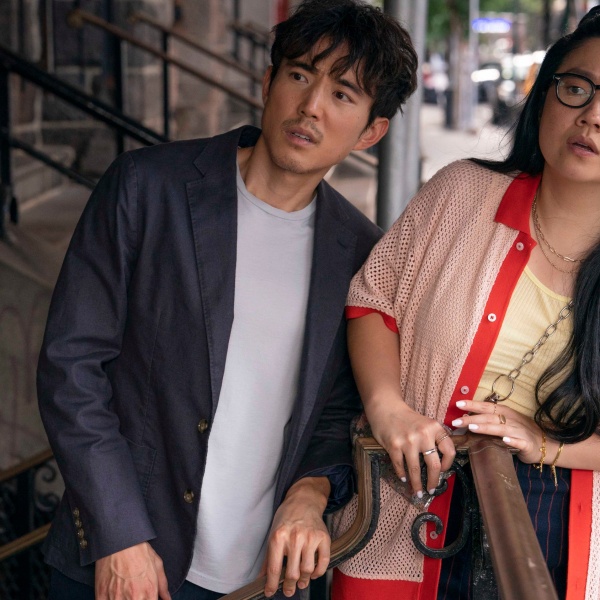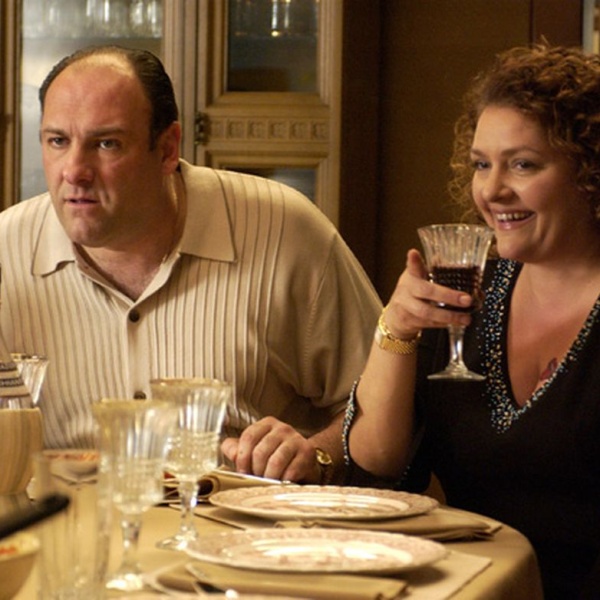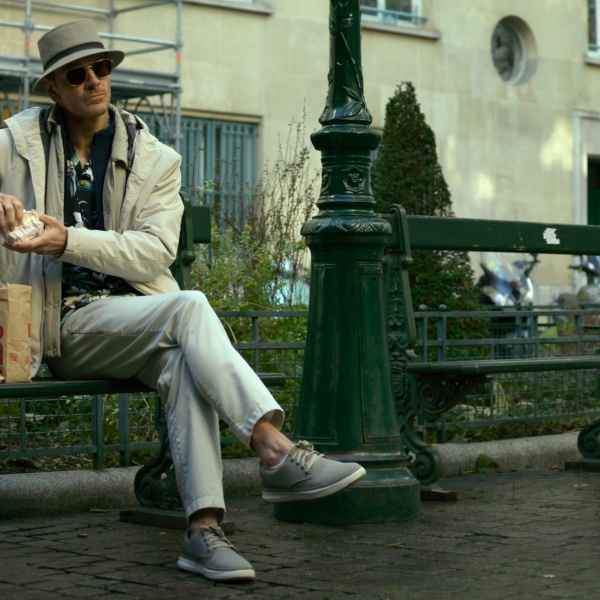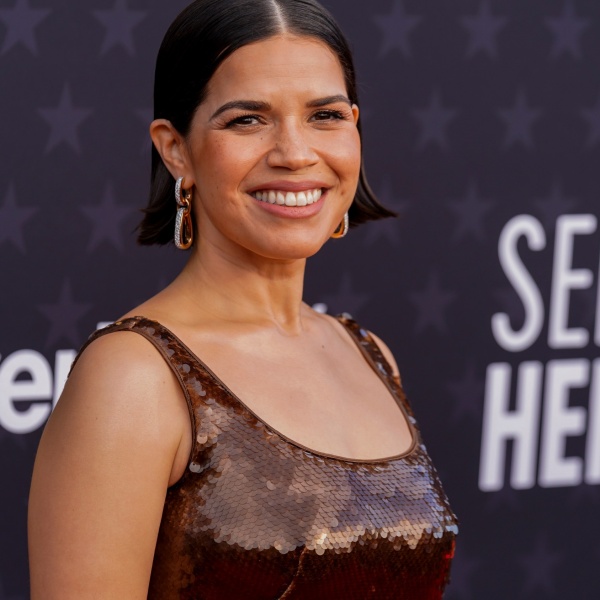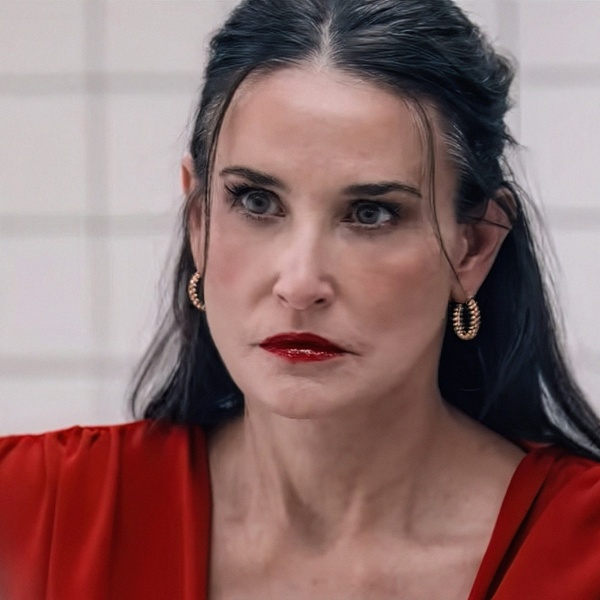Patricia Clarkson is no stranger to playing a mother in turmoil.
She earned an Oscar nomination for her performance as a woman perhaps oxymoronically named Joy and dealing with breast cancer in “Pieces of April” (2003). On the small screen, she earned an Emmy nomination for portraying Adora, a bitterly faded Southern belle with Munchausen by proxy syndrome in “Sharp Objects” (2018). Now, in director/co-writer Andrea Pallaoro’s “Monica,” she plays Eugenia, a Midwestern mother dying of brain cancer and now getting reacquainted as best she can with her estranged daughter (Trace Lysette), who is trans.
In “Pieces of April,” “I was a very present, very feisty woman. [With ‘Monica’], I’m considerably older. I’m 20 years older. She really is on borrowed time,” Clarkson said in a recent interview with IndieWire. As for preparing to play a woman physically and psychologically succumbing to the terminal illness, she added, “I’ll tell you this: the preparation, first of all, it was bourbon. No, kidding. A few nights, maybe.”
Co-written by Orlando Tirado, the elegantly Antonioni-esque “Monica” first premiered at the 2022 Venice Film Festival to an 11-minute standing ovation. In this spare and unsentimental drama, trans actress and “Transparent” breakout Lysette plays the title character, a sex worker in Los Angeles who, shattered by a recent breakup, gets a call from her sister-in-law (Emily Browning) that changes everything. She’s soon entreated her to come home to Ohio to share some parting final moments and words with her mother Eugenia, who has stopped taking her meds, is losing her memory, rarely speaks, and is in the final stages of her cancer.
Marvelously, “Monica” doesn’t center around some kind of tragic trans redemption narrative concomitant with a more Hollywood story; the movie, as IndieWire’s Jude Dry noted in their review, “neither ignores nor obsesses over the character’s trans-ness.”
“It’s so interesting that now this film of course has taken on a real importance with the idiocies happening in our country with transgender assault,” said Clarkson, a proud Southerner, noting the wave of anti-trans and anti-queer legislature rippling through the country.
Back at Venice, Clarkson told a journalist she was still a little scarred by playing a woman deprived of her mental faculties because of illness, but “my trepidations about playing this part pale in comparison” to the real issues “Monica” seeks to address.
“To play someone who is dying in front of your eyes, someone who is really in the very last chapter of their life, is daunting as an actor, because you need to get things right. You have to take on how it affects the body, the soul, but you also have to let your body take over and your mind kind of literally fade away,” said Clarkson, who first met director Pallaoro while she was on a jury at 2013 Marrakech Film Festival (Martin Scorsese and Paolo Sorrentino were also among the jurors). They promised to work together, stayed in touch, until years later when Pallaoro came to her with “Monica” and Lysette in the cast.
“First of all, it was very flattering. That gorgeous woman, you think I’m her mother?,” Clarkson said with a laugh. “I’m dying, and I can’t wear any makeup!”

Clarkson said the movie “wrestled” for a while until the financing came together — and a “great tax break in Cincinnati,” where “Monica” finally shot on film and in the Academy ratio. (“This is true cinema … you haven’t seen a movie shot on film since prehistoric times.”)
“Getting a transgender film made is difficult,” Clarkson said. “I had a deep and profound love for this project, but that carried me and kept me someone buoyant in the midst of this darkness I had to enter.”
Eugenia requires a great deal of care from those around her, and this creates the conditions for Monica to pose as a hospice worker. Eugenia doesn’t recognize Monica as her own child, whom she sent out of their home many years ago, presumably because of Monica’s trans-ness and before Monica transitioned.
“There also was the beauty of a mother realizing your child is your child is your child is your child and taking on this incredibly important subject matter,” Clarkson said.
With Eugenia, the relaxed and unpretentious Clarkson also finds it curious that she gravitates to maternal roles — and ones with an acute ambivalence toward motherhood in general — when she herself has famously never been married, never had children, and never wanted either.
“I knew from a very early age that I did not want to marry, that marriage was not something I had to do or necessarily would do, as a Southern woman, a straight Southern woman,” she said. “Yes, of course, my parents wanted it, but I have cool parents. My mother ran the city of New Orleans. She’s a powerhouse.”
From her Emmy-winning turn as a free-spirit would-have-been artist in HBO’s “Six Feet Under” to a Manhattan divorcee in the film “Learning to Drive,” Clarkson embodies women who rebuke patriarchy and decorum, instead saying what’s really on their mind. (Most recently on the big screen, she played New York Times investigations editor Rebecca Corbett in “She Said,” an instrumental figure in revealing Harvey Weinstein as a serial rapist and sexual predator.) But there’s not some reservoir of personal experience she’s tapping into.

“I’ve had really exceptional men in my life, not all of them, but quite a few. So I’ve had profound relationships in my life that I really value still but I do think it’s interesting that I am so far from this life of marriage and child and yet I am always playing these characters within that life,” she said. “I do have parents who’ve been married 70 years, we just celebrated. My sisters are married. A lot of my friends are married. I am surrounded, it’s lousy with marriage around me, it’s just every day, marriage! I think they imprint on me in some ways, but I think I’m empathetic, but I also have a certain kind of reserve about it that maybe helps me play these women in a certain way. I’m not quite sure because I have loved, I’ve had loss, I’ve had heartbreak, I’ve had all of the things that go with a relationship, I just haven’t had the actual marriage certificate.”
But Clarkson knows she’s not the centerpiece of “Monica,” which is really Lysette’s story and hinges on Lysette’s performance — and that’s why Clarkson feels such passionate advocacy for it. Humanistic and progressive views of sexual identity are increasingly laundered into mainstream projects that otherwise ignore them, leaving the real responsibility on independent projects like “Monica.” She’s optimistic that, despite being an indie film with a small cast and limited means, “Monica” has a chance to break out.
“Will it break because it’s so topical now? It is about a family, it’s a family movie in an odd way, is it possibly a movie that can break through? And that’s what I’m hoping, is that somehow the bigger critics in this town, in New York and LA who are now seeing it for the first time but they didn’t review it then, really embrace it and give it a thrust out in the world and hopefully, you know, people are viewing it,” she said. “We are now opening in quite a few theaters, it’s exciting it was just New York and LA, now it’s other cities … so I am hoping that maybe just the beauty of this film and the importance of this film really kind of help it lift up and out. That’s my wish.”
An IFC Films release, “Monica” opens Friday, May 12 in New York at IFC Center and in LA at the Nuart. More dates to follow.Watch an exclusive clip from the film below.

